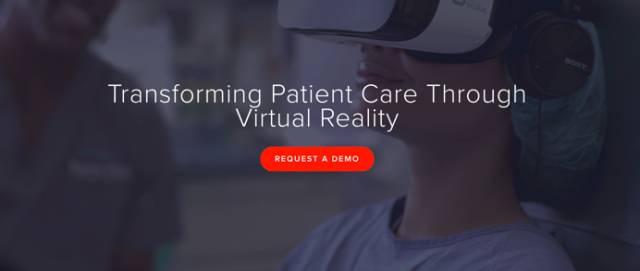How does digital medicine enter the field of neurological diseases?
Release date: 2017-03-29

[Health Point] The human brain, along with the countless diseases associated with it, is more complicated than imagined. For this reason, it is difficult for the medical community to find effective and effective solutions for the treatment of various neurological diseases including depression, stroke, and Parkinson's disease. Recently, however, the rapid development of neuroscience and digital technology has brought about a new wave of technology that has seen new hopes for breaking through the bottlenecks in neurological and mental health research.
Compared to the intricate research objects that researchers need to face, the methods used by these emerging digital tools to enter the market are much simpler and clearer—keywords are “partnersâ€.
The insightful large-scale medical research institutions have seen the rapid advancement of digital technology, and they have begun to seek cooperation with digital medical companies in the field of neuroscience. For example, Duke Clinical Research has just hosted the first symposium on digital medical clinical trials in the field of neuroscience. These digital companies have not used the relevant products to find a foothold in the health care industry, just because these innovative technologies are too cutting-edge and must be treated with rigor. In order to enter the market, it is not only necessary to go through a rigorous clinical testing process, but also to be concerned with various relevant regulations. Some companies have considered cooperating with pharmaceutical companies in order to simplify the procedures.
The Akili Interactive Lab is a good example. The company is committed to developing applications and web games for neurocognitive assessment, and looks forward to helping treat ADHD and Alzheimer's disease in the future. Akili is currently conducting several clinical trials on various patient populations. Not long ago, the company announced a research collaboration with Pfizer and said they are working hard to complete the corresponding clinical trials in order to obtain FDA approval by the end of the year.
Akili's CEO, EddieMartucci, said his company often works with pharmaceutical companies. In 2016, he found a huge shift within the digital industry and could lead to more digital innovation.
“I feel that a huge change is happening last year,†he said at the recent San Francisco Experimental Technology Conference. “When we think about what digital means, we no longer use it as a means of assisting other products. Instead of treating it as a means of perfecting existing traditional products, we regard the numbers as the products themselves. Our dialogue is no longer about 'hey, can you refine my experiment with digital technology?' But 'Okay, you have a display now, there is a digital processing technology, so how can these things bring long-term commercial benefits? How do we make them work?' Such dialogue means our thinking The pattern has changed, and the same shifts within large medical product companies are happening."
Pharmaceutical companies in the digital medical field are still catching up with innovations by learning from technology companies. These emerging technology companies also need to learn how to optimize clinical trials to ensure compliance with laws and regulations, while also paying attention. Payment issues.
MindMaze, a Swiss-based virtual reality neurotechnology company, received a $100 million Series A financing in February 2016 and recently worked on a virtual reality product to help stroke patients recover. Andrea Serino, the company's chief neuroscientist, said his company needed to accumulate enough clinical data in accordance with relevant regulations.
MindMaze has European quality testing approval standards but no FDA approval. Finding the right partner is especially critical for companies that require regulatory approval.
“We need to deal with regulatory issues as well as collecting clinical evidence. We hope to do both. We are a European-based company, but we have to deal with different regulations from various countries. It’s strange to think about it carefully, because the symptoms of patients everywhere are the same,†founder Serino said. “I think the cooperation between digital medical companies and pharmaceutical companies is necessary: ​​this can be digital processing technology and traditional The combination of drug treatments, we can try a multi-modal approach to dealing with problems like neural plasticity, for example, you can use virtual reality technology to improve brain plasticity in many different ways."

For AppliedVR, some of the pressures associated with medical regulations were transferred to the hospitals that worked with them because they did not make medical claims about their software and did not sell products directly to consumers for therapeutic purposes. But this did not prevent AppliedVR to try to prove that its products are completely worth the patient's payment. At first, AppliedVR didn't know what role it would play in the medical industry, but the US opioid crisis triggered a large demand for non-drug control of pain, so Cedars-Sinai took the initiative to contact AppliedVR. Ask them to be a member of their incubator TechStars project.
“This is one of our best decisions so far. We were able to work with one of the top 20 hospitals in the United States,†said Matthew Stoudt, CEO of AppliedVR. “This hospital perfectly integrates our products. It has become our top customer. Other medical and health institutions have followed suit and asked about their experience in working with us. Now, we have received strong support from the payers."
Paying reimbursement remains one of the biggest challenges for medical innovation. Although Stoudt would not disclose who his partners are, he said that AppliedVR expects a reasonable level of reimbursement to ensure that even patients in ordinary hospitals can benefit from it. Because the company is only responsible for providing virtual reality devices for health care, and clinicians are the people who decide how to use them, ApplirdVR does not need to seek regulatory approval. This shows that without the existence of the hospital in West Sinas Sinai and the medical insurance system, they are unlikely to come today.
“Once you see this kind of technological development, it will grow up with lightning speed. All the work that you have done before will also accelerate, but you still need to be recognized by others,†Stoudt Says, "For us, only if people fully believe in the future of this technology, can we continue to do so. This is the greatest help for us at the West Das Sinai Hospital in California."
For companies that do not have access to health care facilities, working with pharmaceutical companies and dealing with regulators as early as possible is the primary way to get them into the market. When Corey McCann, CEO of PearTherapeutics, founded the company, he focused on the needs of pharmaceutical companies for several reasons: the clinical efficacy was guaranteed, while also taking into account intellectual property rights, understanding of the nuances of the regulations and the payment side's problems. Similar to Akili, Pear has not yet brought products to market, but the company is fully investing in eFormulations product development, combining drugs that treat specific diseases with digital treatments. Although McCann itself has a solid foundation in neuroscience and venture capital, creating digital treatments for neurological diseases is not easy for Pear and pharmaceutical companies.
“There are so many things for us to learn. These are two completely different areas. I often joked that in the company’s six-month establishment, the digital technology team and the medical team are using it. API acronym, but we are referring to two different things. We are talking about two different languages, I think this is the difficulty that pharmaceutical companies feel to cooperate with technology companies," McCann said. "In fact , the digitization of drugs. It’s a matter of time, but it’s not happening yet. It’s really difficult for pharmaceutical companies, they need to be fully committed.â€
Although Stoudt admits that the collaboration with the West Das Sinai Hospital in California does not require them to entangle with the regulatory authorities, he believes that AppliedVR is as close to the FDA as other digital medical companies working on neurological diseases. Although this will scare off investors and entrepreneurs at first, it has taught these companies how to deal with regulators.
"Obviously, investors will be worried about this. I think they will say, 'It takes a lot of time and money to take the FDA license. It is better to find a shortcut if you try to avoid it." Stoudt said, "FDA is a Deep pit. We recently called the FDA person and found him because we were completely ignored before and buried 15 pages after the FDA website."
Dealing with the FDA can promote policies that can help technology grow. The FDA also recently said that they are willing to deal with technology companies to understand the true use of these technologies, and even to watch early clinical trials of digital medicine.

“I don’t want to make adjustments, we hope to avoid doing this,†Stoudt said. “But we have to consider three factors: the medical conclusions you make, the risks you need to take, and the real use. If we can It's best to avoid adjustments made by regulatory authorities, but I hope that the FDA can be more open, at least with us. The more we get in touch with them, the more policy reforms we can make."
The two companies, Akili and Pear, are actively seeking FDA approval. They believe that doing so is rewarding: they will quickly gain recognition from doctors, patients, and payers.
“The obstacles caused by clinical evidence are obvious: you need a lot of randomized controlled trials, usually with multiple different data sets. Also need to provide a document on safety and efficacy to prove that this is a real Medical products," Martucci said. "We have sufficient evidence, so the statement will be written like this - for the treatment of ADHD in children. The same is true for products that treat cognitive decline and depression. Such a statement is a very straightforward medical statement and a very clear statement of evidence. But the FDA has its own set of methods to deal with. This is not just the FDA's fault. When we face a group of doctors, you need to know that the people who usually give you ADHD are not the geeks who are willing to try new things. It's a doctor who is very accustomed to the prescription of Adderall or Ritalin (two drugs for children with ADHD), so you need to provide something that is completely different from Adderall and that works well.
“Payers are clearly the most important part,†McCann said. “There are two challenges for our companies. On the one hand, our products are related to mental health; on the other hand, we have proposed A new way of treatment that is different from the past. It is easy to be rejected from any point of view. People's presupposition is obviously not good for us. Therefore, the role of the payer in it is particularly important."
People are still waiting for more news about the digital medical programs that treat neurological diseases and mental problems, but the strategies these companies have taken to enter the market are obvious. Understanding the human brain may still be the last step in medical research, and digital innovation companies are on the way.
Compilation source:
Source: Health Point
Burn Gel,First Aid Burn Gel,Sterilize Burn Gel,Burn Relief Gel
Roosin Medical Co.,Ltd , https://www.roosinmedical.com